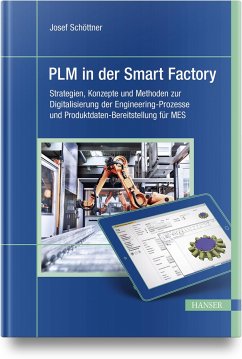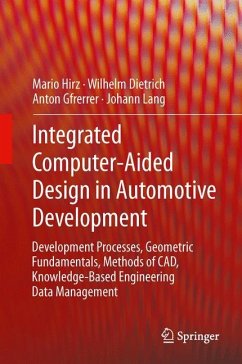
Virtual Product Creation in Industry
The Difficult Transformation from IT Enabler Technology to Core Engineering Competence

PAYBACK Punkte
0 °P sammeln!
Today, digital technologies represent an absolute must when it comes to creating new products and factories. However, day-to-day product development and manufacturing engineering operations have still only unlocked roughly fifty percent of the "digital potential". The question is why? This book provides compelling answers and remedies to that question. Its goal is to identify the main strengths and weaknesses of today's set-up for digital engineering working solutions, and to outline important trends and developments for the future.The book concentrates on explaining the critical basics of the...
Today, digital technologies represent an absolute must when it comes to creating new products and factories. However, day-to-day product development and manufacturing engineering operations have still only unlocked roughly fifty percent of the "digital potential". The question is why? This book provides compelling answers and remedies to that question. Its goal is to identify the main strengths and weaknesses of today's set-up for digital engineering working solutions, and to outline important trends and developments for the future.
The book concentrates on explaining the critical basics of the individual technologies, before going into deeper analysis of the virtual solution interdependencies and guidelines on how to best align them for productive deployment in industrial and collaborative networks. Moreover, it addresses the changes needed in both, technical and management skills, in order to avoid fundamental breakdowns in running information technologies for virtual product creation in the future.
The book concentrates on explaining the critical basics of the individual technologies, before going into deeper analysis of the virtual solution interdependencies and guidelines on how to best align them for productive deployment in industrial and collaborative networks. Moreover, it addresses the changes needed in both, technical and management skills, in order to avoid fundamental breakdowns in running information technologies for virtual product creation in the future.














